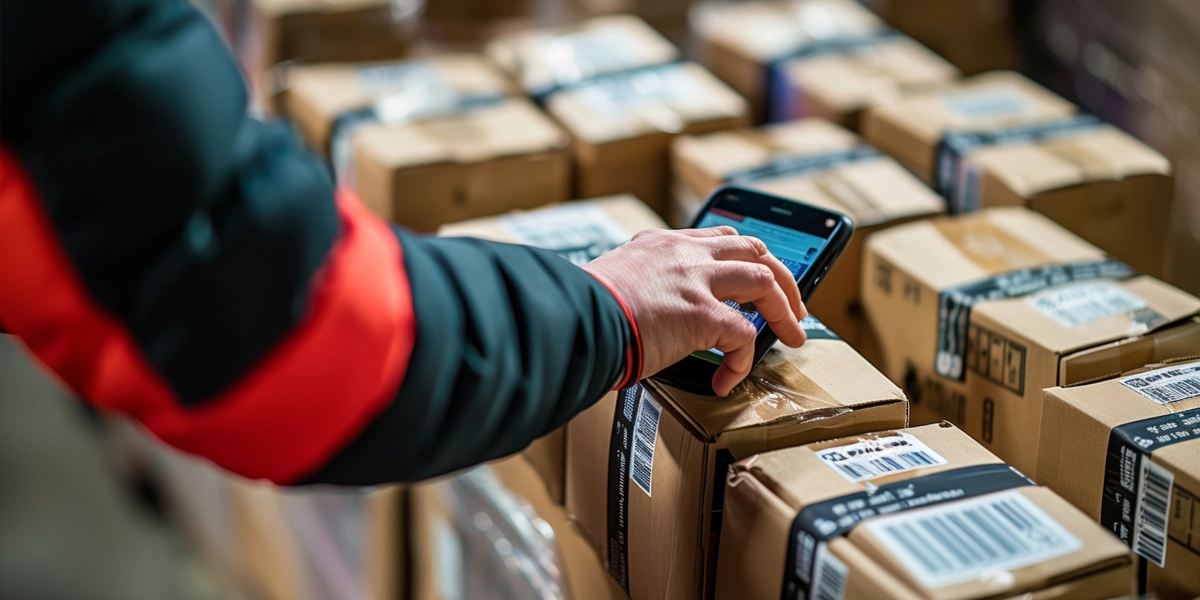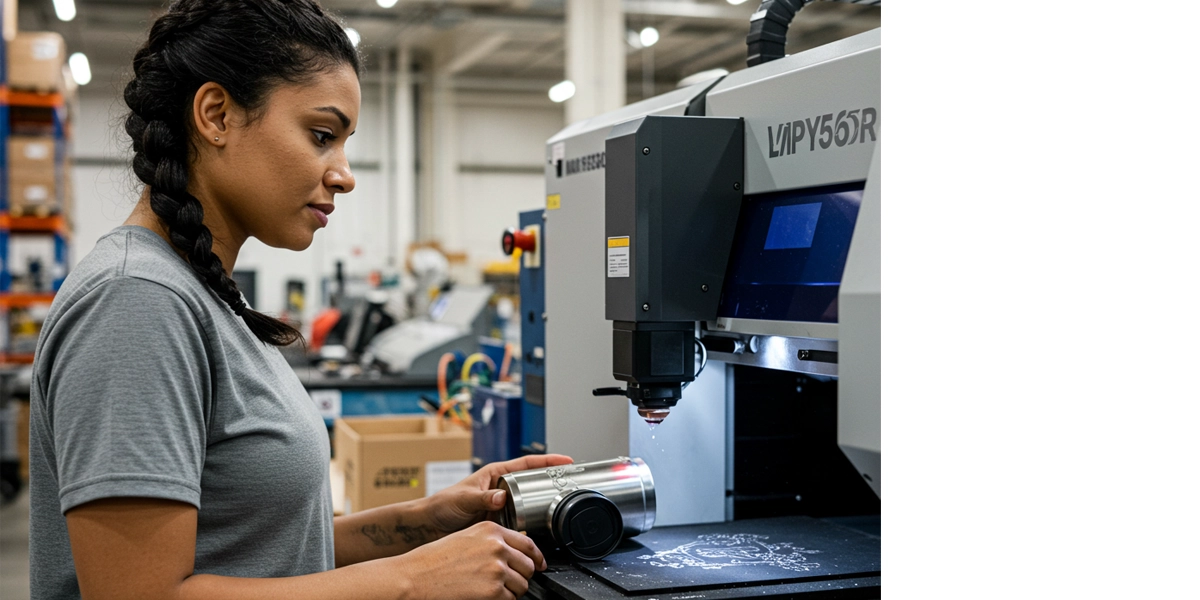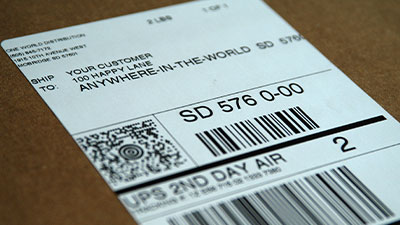In This Article:
If you run an ecommerce business, picking the right 3PL is one of the most significant decisions you can make. Traditional 3PL models often pose significant challenges for ecommerce brands, acting as a bottleneck that restricts growth potential. These outdated systems typically treat logistics as mere expenses, focusing on cost-cutting rather than value creation.
Ecommerce businesses face hurdles such as high storage fees, inefficiencies in order fulfillment, and difficulties in scaling operations. These issues can limit their ability to explore new revenue streams or implement innovative strategies like product personalization.
P2C (Personalized-to-Consumer) fulfillment models offer a transformative solution by streamlining the personalization process and maximizing profits without additional work or expenses. This approach not only enhances customer experience but also positions fulfillment as a profit-driving service that fuels brand differentiation and engagement.
Product personalization is one of the biggest trends in ecommerce today. It’s an easy way to sell more products at a higher price point and generate natural word-of-mouth marketing:
77%
of consumers have chosen, recommended, or paid more for a brand that provides product personalization.
- 20% of consumers would be very willing to pay a premium for products that they had personalized. [Source: Deloitte]
- 50% of consumers believe that customized products make ideal gifts/presents. [Source: Deloitte]
- 77% of consumers have chosen, recommended, or paid more for a brand that provides product personalization. [Source: Forrester]
- 73% of consumers want personalized product packaging and delivery, and only 40% of brands can actually provide such services. [Source: Deloitte]
- 34% of consumers believe that standard, non-personalized products or services cannot meet their needs or expectations. [Source: Deloitte]
Learn more about P2C and partner with a 3PL that isn’t another expense but a new revenue-generating opportunity.
Understanding the Cost vs. Profit Mindset in 3PL
In the world of ecommerce, Third-Party Logistics (3PL) is often seen as a necessary expense. This traditional view sees logistics as an unavoidable cost center, one that facilitates operations but does not directly contribute to profit margins. For many businesses, expenses related to warehousing, transportation, and distribution are accepted as fixed costs—essential yet burdensome components of their supply chain.
This entrenched mindset can significantly limit a brand’s ability to explore new revenue avenues. By focusing solely on minimizing logistics expenses, businesses might overlook profit opportunities that innovative fulfillment strategies could unveil. The 3PL cost vs profit dichotomy suggests that while logistics is essential, it can also be transformative when approached with a profit-centered perspective.
Brands stuck in this conventional view may miss out on leveraging Personalized-to-Consumer (P2C) fulfillment services or integrating value-added features that enhance customer engagement and increase profitability. Transitioning from a cost-centric model to a profit-driven approach requires recognizing the potential of 3PL not just as a logistical necessity but as a strategic partner in growth and differentiation.
Embracing this shift opens doors to monetizing personalization trends and integrating advanced technologies for streamlined operations, thus transforming fulfillment into a profit center rather than mere expenditure.
The Limitations of Traditional Fulfillment Models
Traditional 3PL services often have several limitations that can hinder the growth of ecommerce brands. Here are some key drawbacks:
1. High Storage Fees
Traditional fulfillment services typically charge high storage fees for keeping inventory in their warehouses. These costs can add up quickly, especially during times when sales are slow and products are sitting idle. This can significantly impact the overall profitability of an ecommerce brand.
2. Order Fulfillment Inefficiencies
Conventional fulfillment models often rely on manual processes and outdated systems to handle order fulfillment. This can lead to inefficiencies, such as delays in processing orders and difficulties in adapting to changes in demand. Big retailers like Amazon and Walmart set a high standard for fulfillment and customers expect quick deliveries at an affordable price.
3. Scalability Issues
For businesses looking to grow, traditional 3PL frameworks may not be able to scale effectively. As order volumes increase, these models may struggle to keep up with the higher demands. This lack of flexibility can result in delayed shipments and unhappy customers, which can harm the brand’s reputation.
4. Personalization Challenges
Many ecommerce brands are now focusing on offering personalized products to attract customers. However, conventional fulfillment strategies are often not equipped to handle the complexities involved in fulfilling customized orders. Costs to engrave, embroider, or customize products are just too expensive, and they can’t find a practical price point to entice customers.
Introducing OWD's P2C Fulfillment Model: A Game Changer for Ecommerce Brands
The OWD P2C fulfillment model is changing the way ecommerce brands handle product personalization. We handle the storage, personalization, coordination, and fulfillment of orders at a price point that won’t break the bank.
Key Differentiators of OWD's P2C Fulfillment Model:
- Seamless Personalization: Tailor products to meet individual consumer preferences without added complexity or expense using our free plugin that easily integrates with your ecommerce platform. This includes engraving, embroidery, and direct-to-object printing capabilities.
- Custom Packaging Solutions: Create unique unboxing experiences with branded boxes, inserts, tissue paper, and personalized greeting cards.
- Efficiency and Scalability: With three strategic fulfillment centers across the U.S., OWD ensures 99% of orders are delivered within two days. While customized orders will take a little bit longer to deliver, shoppers are willing to wait for personalized products.
Benefits of P2C for Ecommerce Brands:
- Increased Customer Engagement: Personalization leads to higher customer satisfaction and loyalty, as evidenced by statistics showing consumers are willing to pay premiums for custom products.
- Improved Profitability: By integrating product customization seamlessly into the supply chain, brands not only enhance customer experiences but also increase average order values. This, in turn, boosts profitability and drives revenue growth.
- Reduced Operational Burden: With OWD's P2C fulfillment model, brands can offload the entire process of product personalization and fulfillment. This saves valuable time and resources, allowing businesses to focus on core operations and strategic initiatives.
- Competitive Advantage: Offering personalized products sets brands apart from their competitors, attracting new customers and fostering brand advocacy.
This innovative fulfillment strategy gives ecommerce businesses the tools they need to stand out in a crowded market while driving growth and profitability.
1. Monetizing Personalization: Leveraging Product Customization Trends for Higher Profits
Product personalization trends in ecommerce have surged, capturing the attention of both consumers and brands. The demand for customized products has become a critical driver in the online retail industry. Consider these statistics: 74% of Gen Z consumers express interest in purchasing personalized items, according to Salesforce. This trend is not confined to the youngest shoppers; 67% of Millennials, 61% of Gen Xers, and 57% of Baby Boomers are also inclined towards customization.
74%
of Gen Z consumers express interest in purchasing personalized items
Why does this matter? Personalized products are not just a fleeting trend; they represent an opportunity for brands to increase revenue and enhance customer loyalty. Brands offering customization can benefit from:
- Higher Average Order Value (AOV): Consumers are willing to pay up to a 25% premium for items tailored to their preferences, as reported by Forbes.
- Increased Customer Loyalty: Personalization strengthens the bond between brand and consumer, turning one-time buyers into repeat customers.
- Word-of-Mouth Marketing: Unique, personalized items lead to organic promotion as satisfied customers share their experiences.
Ecommerce businesses can capitalize on this burgeoning trend by integrating OWD’s Personalized-to-Consumer (P2C) fulfillment services into their operations. OWD’s P2C model offers several advantages:
- Seamless Integration: OWD provides a free P2C cart plug-in that simplifies the customization process directly on client websites.
- Diverse Customization Options: From engraving and embroidery to direct-to-object printing and custom packaging solutions, OWD enables brands to offer a wide range of personalization choices.
- Efficiency and Scalability: These services are designed to handle high-volume orders efficiently during peak seasons without additional logistical headaches.
By leveraging these capabilities, ecommerce brands can transform personalization from a mere selling point into a significant profit center, aligning with consumer expectations while driving business growth.
2. Adding Value Beyond Logistics: Integrating Value-Added Services into Your Fulfillment Strategy
It’s hard to stand out as an ecommerce brand. One effective strategy is to go beyond traditional logistics and include value-added services in 3PL that elevate the customer experience. These services make the fulfillment process more efficient and give brands a competitive edge by offering something extra to their customers.
Key Differentiators:
- Fast Shipping Options: Speedy delivery is no longer a luxury but an expectation. Consumers expect their orders to arrive quickly and safely, making fast shipping an attractive feature for any brand. Whether it’s offering overnight shipping, on-time guarantees, or more eco-friendly fulfillment options, giving your shoppers a variety of shipping options is essential to get more sales.
- Gift Wrapping and Special Packaging: Personalized touches such as gift wrapping or custom packaging can significantly enhance the unboxing experience, leaving a lasting impression on customers and increasing brand loyalty.
- Painless Returns: Partner with a 3PL that offers reverse logistics services. Having an expedited and easy returns process and offering return solutions will help avoid any bad reviews or negative customer experiences.
- Proactive Ecommerce Customer Service: OWD offers call center services, providing omnichannel customer care and ecommerce customer service through chats, phone, or email.
OWD’s expertise in handling complex logistics operations enables them to provide these value propositions smoothly. What sets them apart from other 3PL providers is their ability to incorporate these services without disrupting existing processes. Through the use of advanced logistics systems and state-of-the-art technology, OWD ensures that clients receive not only fulfillment services but also comprehensive solutions designed to enhance their brand identity.
By integrating these value-added elements into their fulfillment strategy, ecommerce brands can improve their position in the market. These enhancements not only lead to higher customer satisfaction but also encourage repeat purchases and positive word-of-mouth referrals. With OWD’s expertise, brands can access the resources they need to innovate and thrive in a competitive marketplace, ensuring that they consistently exceed high expectations.
3. Streamlining Operations for Maximum Efficiency: The Role of Technology in Modern Fulfillment Solutions
The right 3PL tech stack is instrumental in lowering logistics expenses and improving your fulfillment operations. Advanced Warehouse Management Systems (WMS) and cutting-edge AI logistics tools are essential for optimizing inventory management processes and significantly reducing operational costs.
How Technology Transforms Fulfillment Operations
Leveraging these technologies allows for:
- Real-time Inventory Tracking: Accurate, up-to-the-minute data ensures optimal stock levels, minimizing overstock and stockouts.
- Automated Order Processing: Reduce picking and packaging errors, improve order picking accuracy, and speed up the entire order cycle from storage to shipping.
- Predictive Analytics: Utilizing historical data to anticipate demand fluctuations and adjust stock levels accordingly.
One World Direct (OWD) is leading the way in this technological revolution. By using advanced technology throughout its facilities, OWD ensures smooth order processing and timely deliveries that not only meet but exceed customer expectations.
Key Technological Implementations by OWD
- Integrated WMS: This system optimizes the flow of goods within warehouses, ensuring every product is tracked accurately from arrival to dispatch.
- Automated Sorting Systems: Speeds up the sorting process while maintaining high levels of accuracy, crucial for fulfilling high-volume orders efficiently.
- Advanced Data Analytics Tools: Provide insights into consumer behavior and inventory trends, empowering businesses to make informed decisions swiftly.
By embracing these advanced technologies, ecommerce brands are equipped to optimize their fulfillment strategies, thus converting logistical operations into profitable ventures. OWD’s commitment to leveraging technology streamlines operations and lays the groundwork for future scalability and innovation in the ecommerce industry.
With such robust systems in place, brands can confidently focus on expansion and customer satisfaction, knowing that their logistics are optimized and adaptable to market demands. This transformative approach positions OWD as a leader in modern fulfillment solutions, ready to support ecommerce businesses at every step of their growth journey.
4. Partnering for Success: Building Strategic Alliances in the 3PL Industry
Working with a 3PL with strategic partnerships is crucial for long-term growth and staying competitive. Collaborating with businesses that complement your own or industry leaders allows you to improve your services, streamline operations, and enter new markets.
Why Partnerships Matter
Here are some reasons why partnerships are important:
- Expanding Capabilities: By leveraging the strengths of partners, businesses can offer a broader range of services without investing heavily in infrastructure. This allows for a more comprehensive service portfolio that meets diverse customer needs.
- Risk Mitigation: Sharing resources and expertise reduces exposure to risks associated with fluctuating market demands and operational challenges. Partnerships provide a buffer that enhances resilience against disruptions.
- Innovation Boost: Collaborating with innovative partners fosters an environment conducive to developing cutting-edge solutions. These alliances drive innovation by combining unique insights and technological advancements from various sectors.
OWD's Strategic Alliances
OWD exemplifies the power of strategic partnerships through its collaborations designed to enhance service capabilities:
- Technology Partnerships: By integrating with leading ecommerce software providers, OWD incorporates advanced technology into its operations, streamlining processes and ensuring efficient order fulfillment.
- Logistics Networks: OWD collaborates with major carriers and logistics networks to offer clients competitive shipping rates and faster delivery times, such as their ability to deliver 99% of US orders in just two days.
- Customization Experts: To amplify their Personalized-to-Consumer (P2C) fulfillment model, OWD has partnered with specialists in product customization, enabling seamless integration of personalized services like engraving and direct-to-object printing.
These strategic alliances not only expand OWD’s reach but also solidify its position as a leader in the ecommerce fulfillment industry. By forging these key relationships, OWD ensures that its clients have access to unparalleled service quality and innovative solutions tailored to their unique business needs.
5. Harnessing Data-Driven Insights: How Analytics Can Transform Your Supply Chain Management Practices
In the complex world of ecommerce fulfillment, data analytics in logistics is a crucial tool for improving supply chain management. This method allows businesses to make smart choices by offering practical insights into different parts of their operations.
1. Demand Forecasting
Data analytics enables precise demand forecasting, allowing brands to anticipate consumer needs and adjust inventory levels accordingly. By analyzing historical sales data and market trends, ecommerce businesses can minimize overstock and stockouts, ensuring that the right products are available at the right time.
2. Route Optimization
Efficient route planning is critical for timely deliveries and cost reduction. Analytics tools process vast datasets encompassing traffic patterns, delivery schedules, and geographic information to optimize delivery routes. This ensures not only faster shipping but also significant savings on fuel and labor costs.
OWD uses real-time data insights to improve operational efficiency while keeping high levels of accuracy and reliability. Our advanced analytics systems keep an eye on every part of the fulfillment process, from when an order is received to when it is finally delivered. This constant flow of information helps us find problems, predict possible disruptions, and come up with proactive solutions.
3. Operational Efficiency
Real-time data tracking allows OWD to streamline operations by identifying inefficiencies in warehouse management processes. With access to up-to-the-minute inventory data, we can dynamically allocate resources, reducing downtime and improving throughput.
4. Accuracy and Reliability
Maintaining accuracy in order fulfillment is non-negotiable. Our data-driven approach ensures that customer orders are processed with precision, reducing errors and enhancing customer satisfaction.
OWD sets a benchmark for excellence in the 3PL industry by integrating cutting-edge analytics into our operations. This strategic use of technology enhances service quality and positions our partners for sustained growth in a competitive marketplace.
Embrace a Profitable Future with OWD's P2C Fulfillment Services!
Turning your 3PL from a cost center to a profit center is not just a possibility—it’s a new reality for ecommerce businesses looking to boost sales and service. By adopting innovative approaches such as product personalization and value-added services, you can transform your logistics operations into a dynamic revenue stream.
One World Direct (OWD) empowers this transformation with our Personalized-to-Consumer (P2C) fulfillment services. Our comprehensive suite of tailored solutions is specifically designed for online retailers, ensuring you maximize profitability while delivering unparalleled customer experiences.
Schedule a complimentary logistics consultation and we can give you a full breakdown of how to lower costs and add new value-added services that improve net profits and convert more shoppers.
FAQs (Frequently Asked Questions)
What does it mean to turn a 3PL from a cost center into a profit center?
Turning a 3PL from a cost center into a profit center involves shifting the perception of logistics services from merely an expense to a source of revenue generation. This transformation can be achieved through innovative fulfillment strategies, such as OWD's Personalized-to-Consumer (P2C) fulfillment model, which helps ecommerce brands explore new revenue streams.
What challenges do ecommerce brands face with traditional 3PL models?
Ecommerce brands often encounter limitations with traditional 3PL models, including high storage fees, order fulfillment inefficiencies, and scalability issues. These challenges can hinder growth potential and prevent brands from implementing effective product personalization strategies.
How does OWD's P2C fulfillment model differ from traditional 3PL services?
OWD's P2C fulfillment model differentiates itself by focusing on personalized solutions that cater to consumer demands. Unlike traditional approaches, which may prioritize cost-saving measures, the P2C model enhances customer engagement and profitability through tailored offerings and value-added services.
Why is product personalization important for ecommerce brands?
Product personalization is increasingly important as consumers seek unique experiences. By leveraging OWD's P2C fulfillment services, ecommerce brands can capitalize on this trend and offer tailored solutions that drive higher profits.
What role does technology play in modern fulfillment solutions?
Technology plays a crucial role in optimizing fulfillment operations. Advanced warehouse management systems and other technological tools help streamline inventory management processes and reduce operational costs. OWD utilizes cutting-edge technology to ensure efficient order processing and timely deliveries.
How can strategic partnerships enhance the capabilities of a 3PL provider?
Strategic partnerships are essential for long-term growth in the competitive ecommerce landscape. Collaborating with complementary businesses or industry leaders allows 3PL providers like OWD to expand their service capabilities and reach new markets, ultimately benefiting their clients.
In This Article:
Subscribe to our Newsletter
Tincidunt urna mauris eu quam vulputate lobortis sit. Purus feugiat arcu nunc quisque massa ut.



























